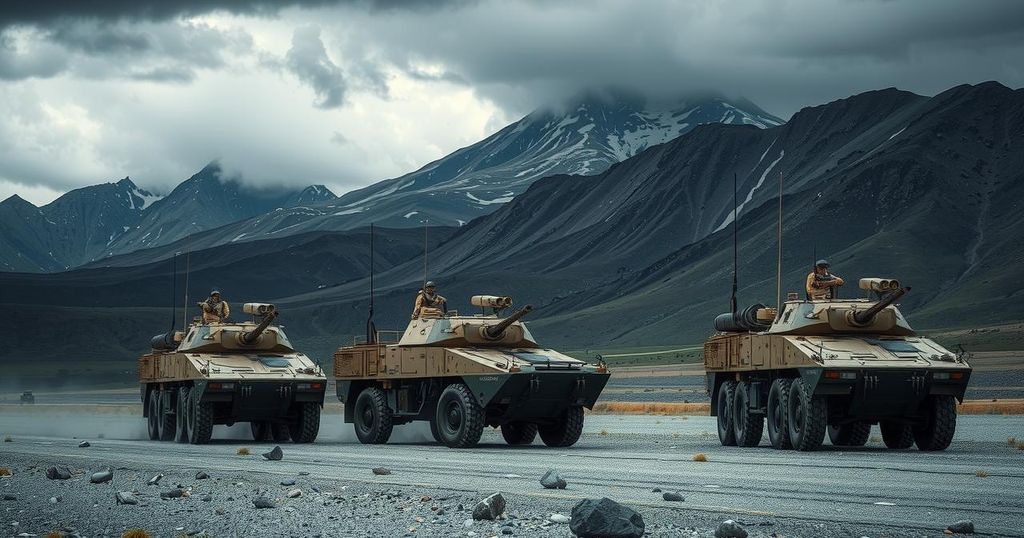President Felix Tshisekedi of DR Congo announced that Congolese troops are mounting a vigorous military response to advances by the Rwandan-backed M23 rebels. He criticized the international community’s inaction during the ongoing humanitarian crisis. Despite international calls for dialogue, Tshisekedi declined to meet with Rwandan President Kagame, emphasizing his government’s coordinated military efforts against the insurgents. The situation remains critical as fighting has intensified, leading to significant humanitarian challenges.
President Felix Tshisekedi of the Democratic Republic of Congo stated that the international community’s lack of action regarding the escalating security issues in the eastern part of the country is an “affront.” He emphasized that Congolese troops are responding vigorously to the advances of the M23 rebels, who are allegedly supported by Rwanda. The M23 group has made significant territorial gains, including the strategic city of Goma.
In his televised address, Tshisekedi denounced the inaction of global powers amid a deteriorating situation, asserting that a well-coordinated military response is underway against the rebels and their allies. The UN and various nations have highlighted the critical humanitarian crisis, attributing it to the ongoing conflict.
The M23 rebels and Rwandan forces have made substantial advances, capturing new districts, prompting concerns over further humanitarian ramifications. Despite pressure for dialogue, President Tshisekedi declined to participate in talks with President Kagame of Rwanda, instead opting for discussions in Luanda regarding the next steps.
The recent fighting has exacerbated an already dire humanitarian situation, resulting in food and water shortages and displacing numerous individuals. In Goma, the local population is struggling with basic needs amid violence, while protests in the capital, Kinshasa, reflect growing frustrations with perceived international indifference.
Calls for the withdrawal of Rwandan troops have been made by the UN and various foreign governments, but Rwanda maintains that its involvement is merely aimed at eliminating threats to its security. There are serious concerns that the M23’s advancement may continue beyond eastern DRC, potentially reaching Kinshasa. Congolese authorities accuse Rwanda of pursuing control over the region’s valuable mineral resources, a claim which Rwanda refutes.
The conflict in the eastern Democratic Republic of Congo is deeply rooted in historical tensions, notably stemming from the aftermath of the 1994 Rwandan genocide. Since then, numerous armed groups have emerged, competing for influence and control over the region’s rich mineral wealth. The M23, a prominent armed group, has re-emerged, capturing significant territory and prompting international concern due to its perceived backing by Rwanda. This situation has led to calls for urgent humanitarian assistance and intervention from the international community, which Tshisekedi claims has been inadequate. Tshisekedi’s remarks come amidst escalating violence and the displacement of hundreds of thousands of people. His administration is under pressure to demonstrate effective defense against the M23, while tensions remain high with neighboring Rwanda, accused of fueling instability for its own strategic interests.
In summary, the Democratic Republic of Congo is facing a critical security and humanitarian crisis as M23 rebels advance in the eastern region, exacerbated by allegations of Rwandan support. President Tshisekedi has expressed frustration over the international community’s inaction and has vowed a robust military response. Ongoing tensions, calls for dialogue, and regional implications underscore the complexity of the situation as the DRC grapples with the dire consequences of prolonged conflict in its mineral-rich regions.
Original Source: www.france24.com






